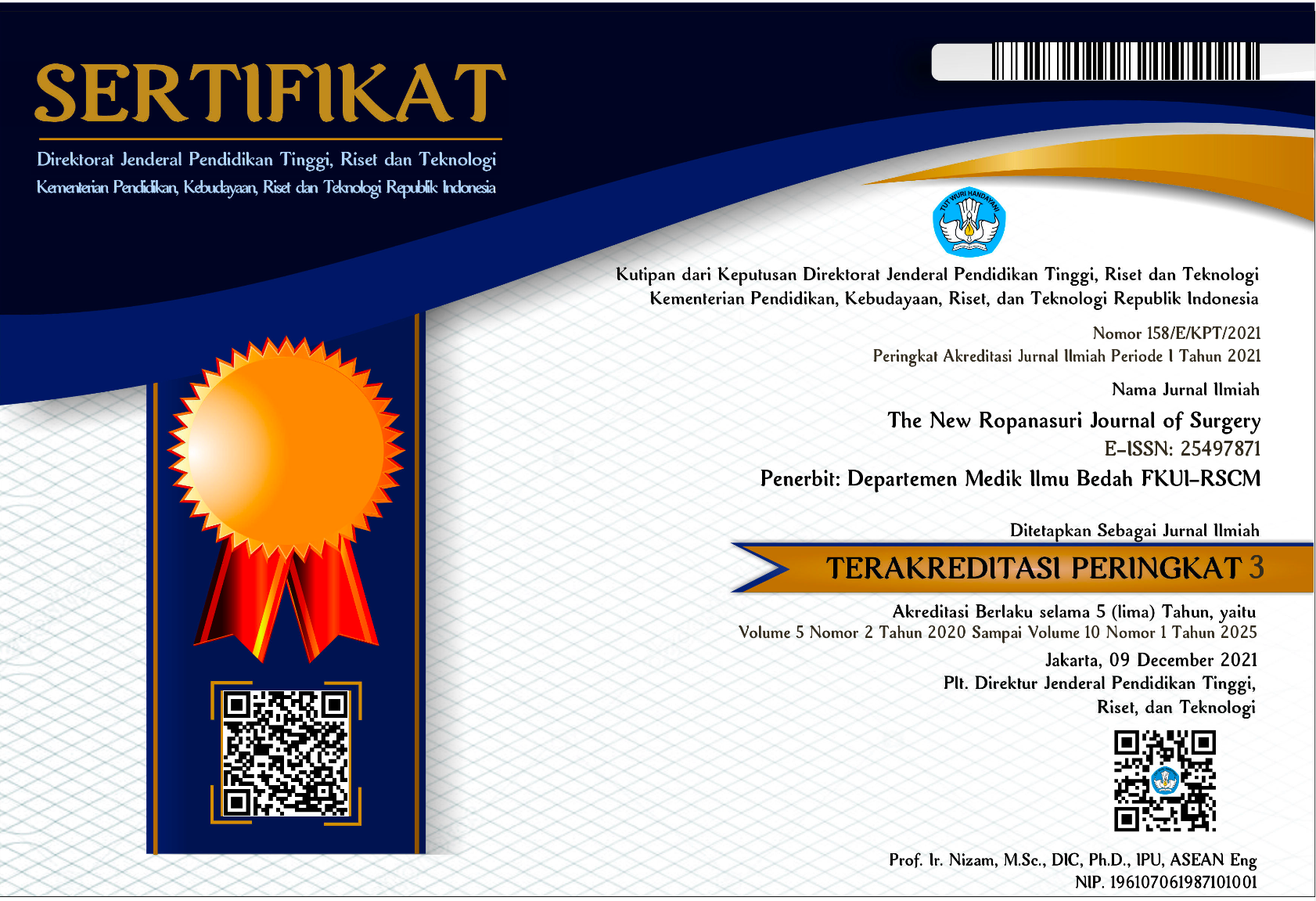Abstract
Introduction. Ischemia/reperfusion (I/RI) injury following limb ischemia is realized to be responsible for remote organs injury which is found in vary, commence with mild injury to a severe one. Nevertheless, liver is an organ susceptible to such an injury. There were studies on I/RI, where ischemia in those studies were induced by direct ligation of hepatic vessels. However, study of remote ischemia was infrequently found. Thus, we run a study aimed to find out hepatic injury following ischemia induced by ligation of an artery with a significant anatomical distance. Method. An experimental study was conducted on New Zealand white rabbit. Ischemia was induced by ligation of right common femoral artery under anesthesia. Ligation was maintained for four hours period. Afterwards, ligation was released, and rabbit was set free in the cage for eight hours period. Laparotomy was carried out to take liver specimens of three different area, namely central, midzonal, and peripheral. These specimens were subjected to study histopathology and biochemical examination for malondialdehyde as well as HIF–1α. In addition, liver function test was carried out for serum bilirubin and transaminases. Results. The study on histomorphologyshowed hepatic injury of central, midzonal and peripheral of the ischemic/reperfusion injury group, which was mostly sinusoidal dilatation. There was a significant statistical different of the three hepatics–zones (central, p = 0.028, midzonal, p = 0.012, and peripheral, p = 0.030). MDA levels showed a significant increase in the ischemic/reperfusion group (p = 0.012, sig α <0.05). Tissue HIF–1α level increased denoted tissue hypoxia in the treatment group. Liver function test showed no abnormality. Conclusion. Oxidative stress and sinusoidal changes were found in three zones, i.e. central, midzonal and peripheral following ischemic of a significant anatomical distance.
Recommended Citation
Maulanisa, Sinta C.; Moenadjat, Yefta; and Kekalih, Aria
(2018)
"Hepatic Reperfusion Injury following Remote Ischemia:
Experimental Study on Oryctolagus cuniculus,"
The New Ropanasuri Journal of Surgery: Vol. 3:
No.
1, Article 5.
DOI: 10.7454/nrjs.v3i1.48
Available at:
https://scholarhub.ui.ac.id/nrjs/vol3/iss1/5














